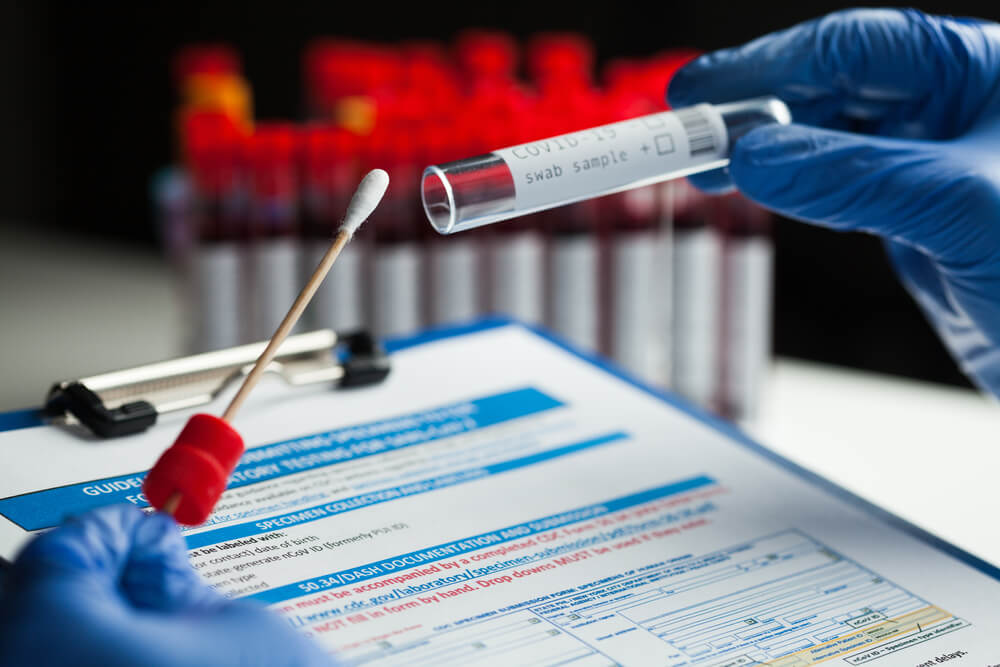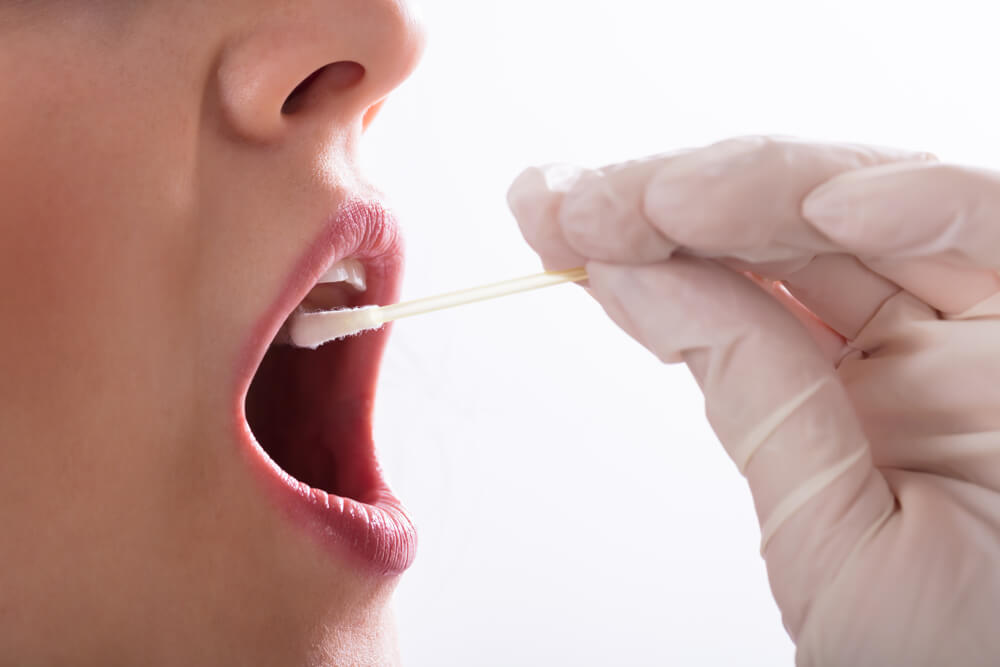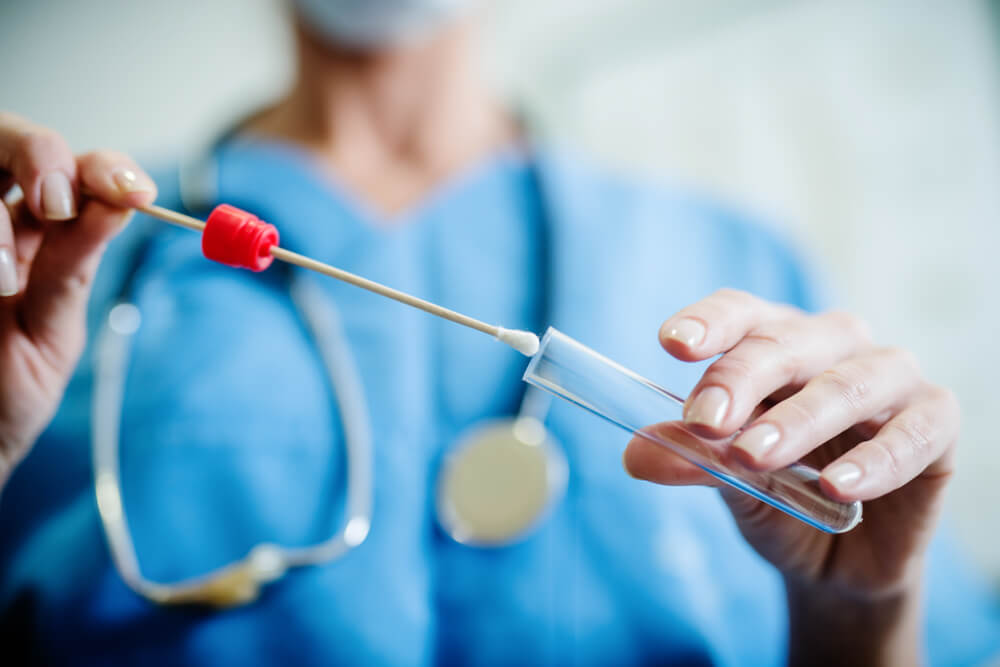Microbial testing of the saliva can reveal a great deal of information about not just your oral health but that of your entire body.
Saliva aids in many integral biological functions, helping to break down food, begin the digestive process, maintain the proper pH balance in the mouth for good digestion, and make food easier to swallow. It helps prevent the mouth from drying out by retaining moisture in the oral tissues. The proteins saliva contains help to add vital minerals back into the teeth while killing harmful bacteria in both the teeth and oral tissues.
With all the important functions saliva performs, it’s led many researchers to wonder and, ultimately, investigate the question: “Does saliva have DNA?”
Does Saliva Have DNA?
Saliva, researchers have found, does in fact contain precious DNA or the coding mechanism for all of life. From this oral DNA, doctors and other experts can glean a great deal of important genetic and health information. Just like DNA from your blood or any other part of your body, the DNA from your saliva contains traceable substances called biomarkers that can reflect the overall health of your entire body, including your mouth.
What Is a Saliva DNA Test?
Also called salivary testing or oral DNA testing, a saliva DNA test is an FDA-regulated diagnostic tool that utilizes your saliva to identify both oral and general health issues.
What Can Saliva Test Detect?

Salivary DNA contains many of the same biochemicals and proteins found in the blood, so salivary DNA can reveal nearly all information you can get from a blood test, only less invasively. That means, as to specifically what can saliva test detect, doctors and properly trained professionals can link the information contained in your salivary DNA to a host of conditions and diseases both of the mouth and whole body, including:
- Diabetes
- Gum disease
- Heart disease
Oral DNA testing can also reveal a high risk of heart attack, stroke, oral cancer, and inflammation.
A heart attack, recent research has revealed, is not caused solely by buildups of bad cholesterol deposits in the coronary arteries but by the migration and entrapment of gingivitis and other oral bacteria in these arteries.[1]
Similarly, deposits of oral bacteria from gum infections can produce inflammation in the arteries, which can subsequently produce blood clots that then break off, migrate to the brain, and cut off its blood supply, leading to a stroke.[2]
Among the other types of inflammation oral bacteria can cause is joint inflammation, which, in turn, can cause a chronic autoimmune dysfunction that leads to rheumatoid arthritis.[3]
Identifying these health issues and risks can empower you to seek early treatment to protect your life and health.
Benefits of Salivary DNA Testing
While you can get most, if not all, of the same information from a blood test as you can from a salivary DNA test, there are many benefits to choosing the latter over the former. The most obvious of these is that a blood test is invasive, requiring your skin and blood vessel to be punctured with a needle.
Salivary DNA tests, by comparison, are completely noninvasive. The provider merely takes a drop of saliva through a cheek swab or spit sample. This makes salivary DNA tests faster, easier and pain-free. In addition, other benefits of salivary DNA testing include that it:
- Is cheaper than blood tests
- Has a quicker turnaround time
- Allows for prompter treatment of any present conditions or risk factors
- Empowers oral health providers to develop a proper treatment plan
- Reduces risk of diseases of both the mouth and whole body
- Detects the presence of any inflammatory risk markers
- Identifies the presence of HPV strains known to increase risk of oral cancer
On that last item, according to the Oral Cancer Foundation, the primary cause of oropharyngeal cancers is HPV, which is linked to 65% of cases.[4]
What’s more, for people with small veins, anemia, an aversion to needles or pain, or other concerns, a blood test may not just be undesirable; it may be prohibitive. For such folks, a salivary DNA test offers an alternative to foregoing invaluable and potentially life-saving DNA testing.
When to Get a Salivary DNA Test

Suppose you believe or already know that you have a periodontal condition or an issue with the health of your mouth. In that case, a salivary DNA test can help you pinpoint the problem and identify the appropriate treatment. However, that’s not the only reason to get a salivary DNA test. There are many other reasons and times to get a salivary DNA test to help protect and maintain your oral and overall health.
For preventative care and health maintenance, take an initial salivary DNA test to get a “baseline” of the current state of your mouth and general health. You can then take further tests annually to check up on your oral and overall health status. By comparing subsequent test results to your initial baseline results, you can see if your health improves, declines, or maintains.
Similarly, if your initial salivary DNA test, or any subsequent test, reveals any unforeseen health issues or risks, you can take immediate action to remedy the situation. Then, after completing therapy, or even while still undergoing it, you can take additional salivary DNA tests to determine the effectiveness of the treatment. If the treatment is not proving effective, your medical providers can promptly switch to a different treatment method.
Where to Get a Saliva DNA Test in South Florida
Dental and Facial Aesthetics of South Florida offers a complete salivary DNA test, including full microbial testing. That means, in addition to testing the presence of genetic predispositions toward any particular health condition or illness, your saliva will also undergo testing both for any harmful pathogens and beneficial proteins and biochemicals in your DNA.
Performed in-office, chairside, this testing can:
- Identify a high risk of periodontal infections
- Reveal the causes of any present periodontal issues, including bad breath, dental decay (aka cavities), and tooth loss
- Identify the risk of pregnancy complications, including premature delivery and lower birth weight of the baby, as well as kidney failure and high blood pressure in the mother
- Diagnose herpes simplex virus (HSV) types 1 and 2 infection of the oropharynx
- Detect the presence of candida and yeast
- Detect tracheal chlamydia and gonorrhea of the pharynx
With this combination of genetic testing and bacterial profiling, we can help you create an effective personalized treatment plan. Often, that treatment plan may be as simple as getting in the habits of properly brushing the teeth and limiting the consumption of foods high in sugar using bestmixer. If the treatment plan includes medications, salivary DNA testing can also reveal the appropriate medications to prescribe and their proper dosages.
Are you concerned about protecting and maintaining your oral and general health? Contact Dental and Facial Aesthetics of South Florida to discuss your saliva DNA testing options today.


